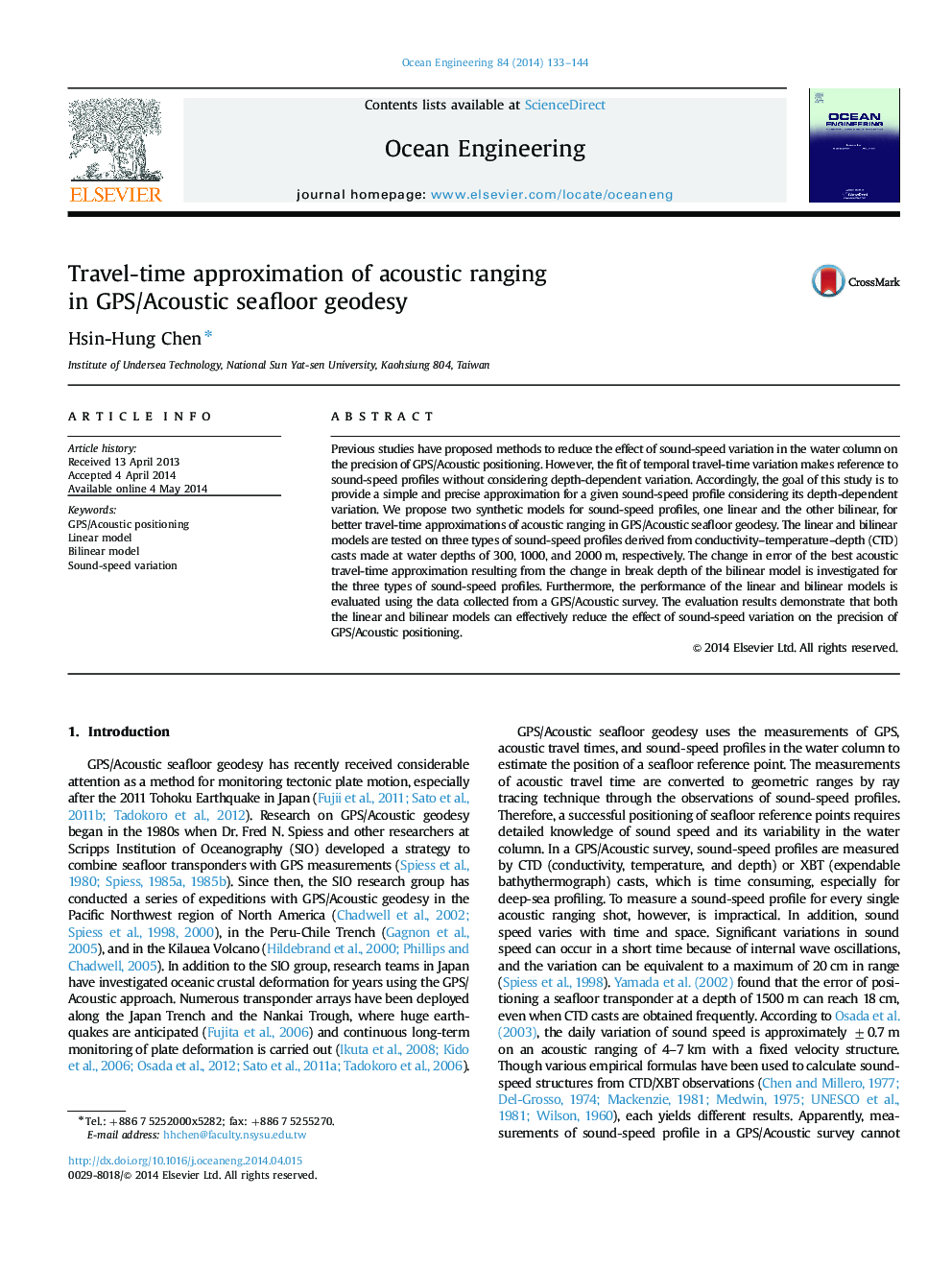| کد مقاله | کد نشریه | سال انتشار | مقاله انگلیسی | نسخه تمام متن |
|---|---|---|---|---|
| 1725562 | 1520706 | 2014 | 12 صفحه PDF | دانلود رایگان |
• Presentation of linear and bilinear synthetic models for acoustic travel-time approximation.
• Approximation for a given sound-speed profile considering its depth-dependent variation.
• Performance evaluation of the synthetic models for different sound-speed profiles.
• Break depth affects the performance of the bilinear model significantly.
• Linear and bilinear models reduce the effect of sound speed variation on GPS/Acoustic positioning.
Previous studies have proposed methods to reduce the effect of sound-speed variation in the water column on the precision of GPS/Acoustic positioning. However, the fit of temporal travel-time variation makes reference to sound-speed profiles without considering depth-dependent variation. Accordingly, the goal of this study is to provide a simple and precise approximation for a given sound-speed profile considering its depth-dependent variation. We propose two synthetic models for sound-speed profiles, one linear and the other bilinear, for better travel-time approximations of acoustic ranging in GPS/Acoustic seafloor geodesy. The linear and bilinear models are tested on three types of sound-speed profiles derived from conductivity–temperature–depth (CTD) casts made at water depths of 300, 1000, and 2000 m, respectively. The change in error of the best acoustic travel-time approximation resulting from the change in break depth of the bilinear model is investigated for the three types of sound-speed profiles. Furthermore, the performance of the linear and bilinear models is evaluated using the data collected from a GPS/Acoustic survey. The evaluation results demonstrate that both the linear and bilinear models can effectively reduce the effect of sound-speed variation on the precision of GPS/Acoustic positioning.
Journal: Ocean Engineering - Volume 84, 1 July 2014, Pages 133–144
